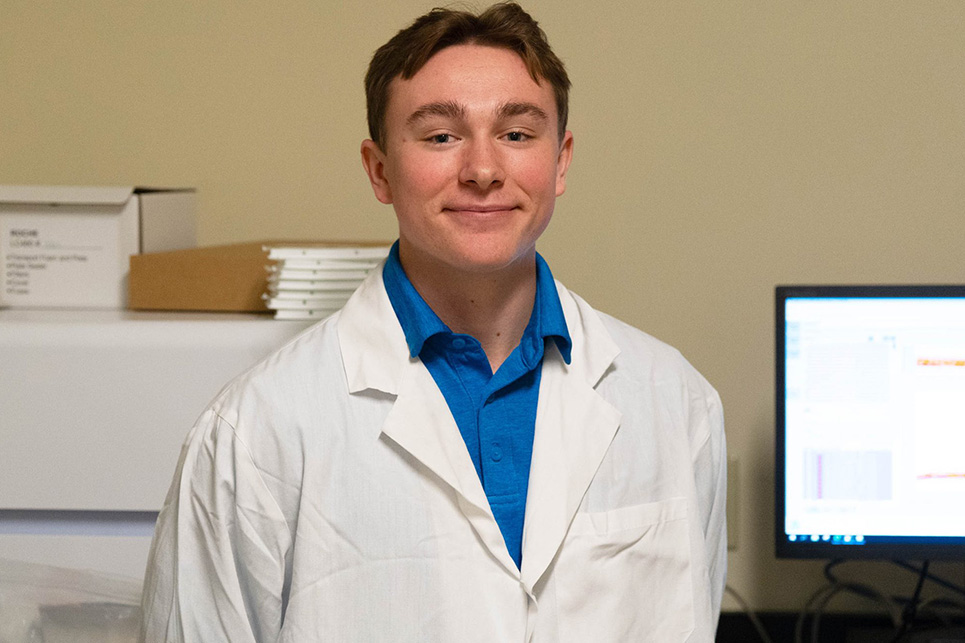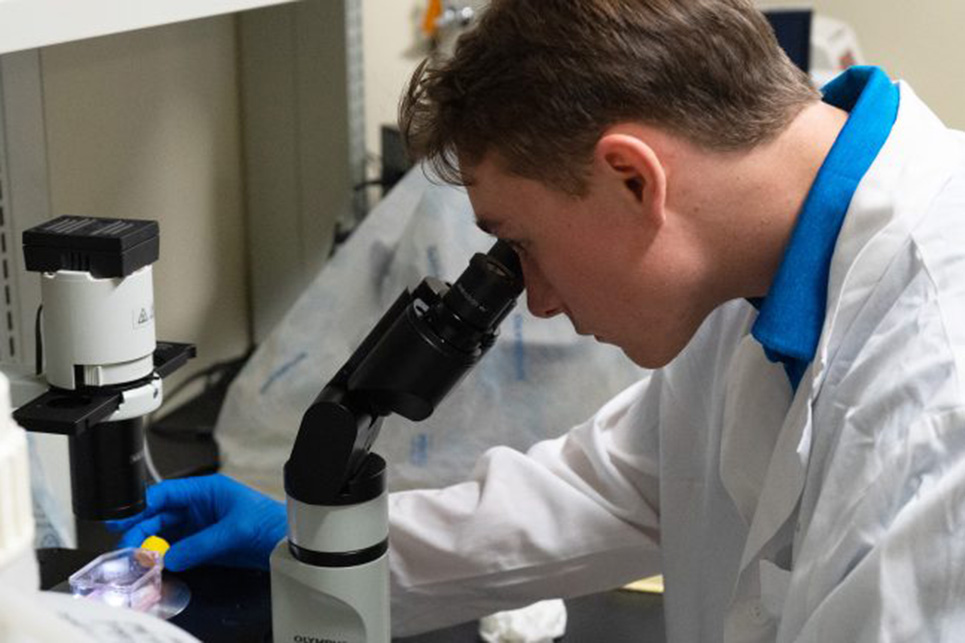Aug. 20, 2025

Story and photos by Logan Jackson
Cole Stevens has gained experience and confidence throughout his three years in the Thompson Laboratory for Regenerative Orthopaedics, a lab focused on conducting the highest quality, hypothesis-driven research centered on orthopaedic disorders.
Stevens, who will be a senior this fall in the Mizzou College of Health Sciences, joined the lab as a freshman. The health science major led his own research project this summer through the Cherng Summer Scholars program.
“When I arrived at Mizzou, I knew I wanted to get involved in research,” Stevens said. “I did a deep dive into the labs across campus, with a specific focus on orthopaedics. I was lucky to find the Thompson Laboratory, and I’ve appreciated the hands-on learning opportunities I’ve had throughout my time with the team.”
Stevens is one of 15 Cherng Summer Scholars who are pursuing their research interests this summer. A nine-week research or creative scholarship program for Mizzou students who are pursuing the Honors Certificate, the Cherng Summer Scholars program allows students to participate in individually designed projects under the mentorship of a Mizzou faculty member. The program is supported by a gift from Peggy and Andrew Cherng and the Panda Charitable Foundation.
“The financial support that this scholarship has provided has been incredible,” Stevens said. “The class has been cool, too, and it’s been really interesting to learn more about what other students are working on.”
Stevens is taking a closer look at osteoarthritis this summer, with a goal of gaining a better understanding of the condition and the regulatory pathways associated with the pathobiology of it. Osteoarthritis is a common joint disease that is characterized by the breakdown of cartilage, which leads to pain, stiffness and reduced mobility.

“Right now, some treatments include cortical injections, which relieves the pain, or total knee replacement,” Stevens said. “The idea behind my research is to gain a better understanding of osteoarthritis, with the overarching goal of being able to potentially find patient or pathway specific treatments.”
The project is an extension of work Stevens began last year. He co-cultured knee fat pads – which are a collection of fat cells that aid in shock absorption and joint homeostasis – and cartilage together and independently. He then looked at the gene expression of the tissues and the concentration of the media protein biomarkers.
“We were primarily trying to understand the pathways a bit better,” Stevens said.
Stevens said working on a project of this nature has been extremely rewarding. He was able to present some of his work during the recent Summer Undergraduate Research and Creative Achievements Forum, hosted by the Mizzou Office of Undergraduate Research.
“It’s really great to be able to contribute to a field that is very important and always growing,” Stevens said. “While I completely understand I’m not going to be finding a treatment immediately or anything of that nature, it’s nice to contribute more knowledge and understanding where I can.”